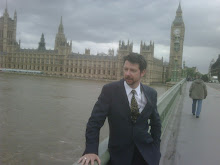For the Daily Record 07/11/19
At the Labour conference I took a walk around Brighton with Tom Watson, it was a revelation.
The first person we (almost) bumped into was Jeremy Corbyn. But the weekend after the botched coup against the deputy leader he was in no mood to meet the boss.
We did, however, have several other encounters as we wandered through the Lanes.
“Are you still here?” someone shouted.
“They haven’t got me yet,” said the cheery pro-politician.
“That’s too bad then,” came the reply, but it was in jest. He was genuinely popular.
People flocked to greet him but Watson was most struck by one man whom he had met two years earlier.
“You changed my life,” said the man. “You got me dieting and look, I’ve lost two stone.”
Watson’s own inspiring transformation from “Big Lad” to svelte “Modfather” changed his outlook on life utterly. He looked and talked differently.
There was a sparkle in his eye when he spoke about health, less so when he talked about Labour.
On the way back to the conference he reminded us how he and his father once had their picture taken with Corbyn outside the hall. “Happy days, two years ago,” he joked.
But the laugh was hollow, the rift at the heart of Labour irreparable.
Tom Watson is one of the most tenacious and fearless campaigners of his generation, and his leaving is Labour’s loss.
With his departure a light goes off in the window for those who thought they could return to a moderate Labour party any time soon.



